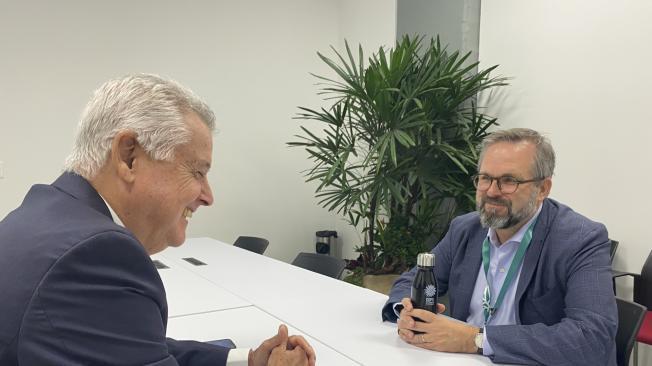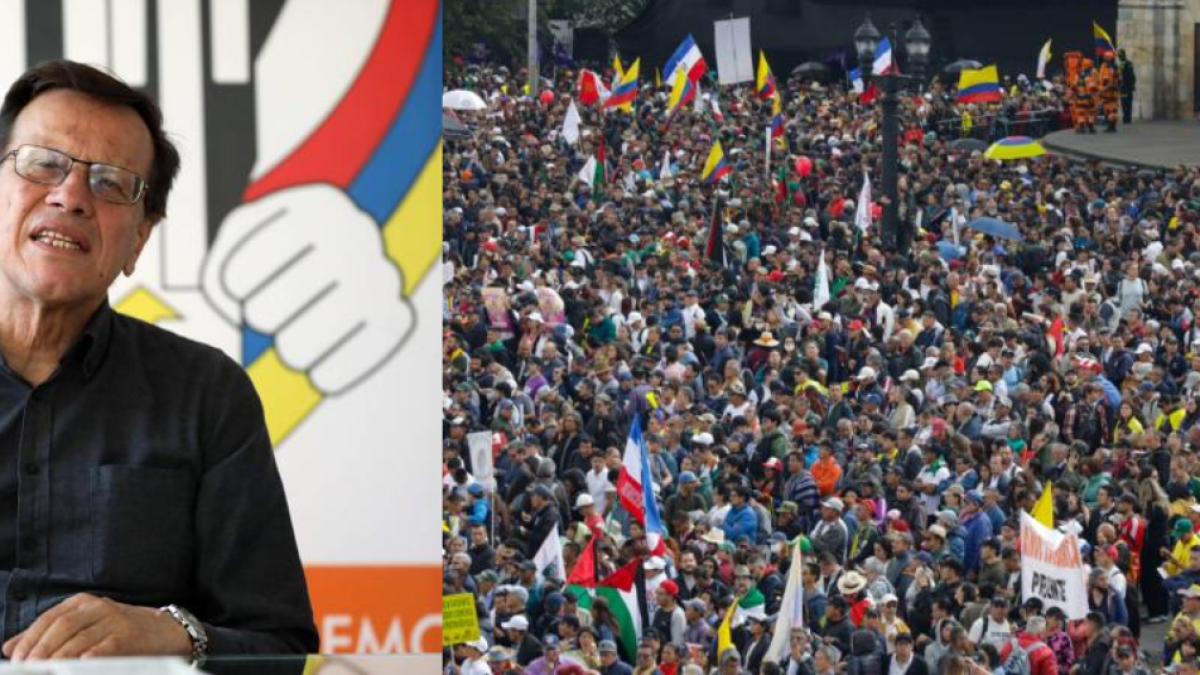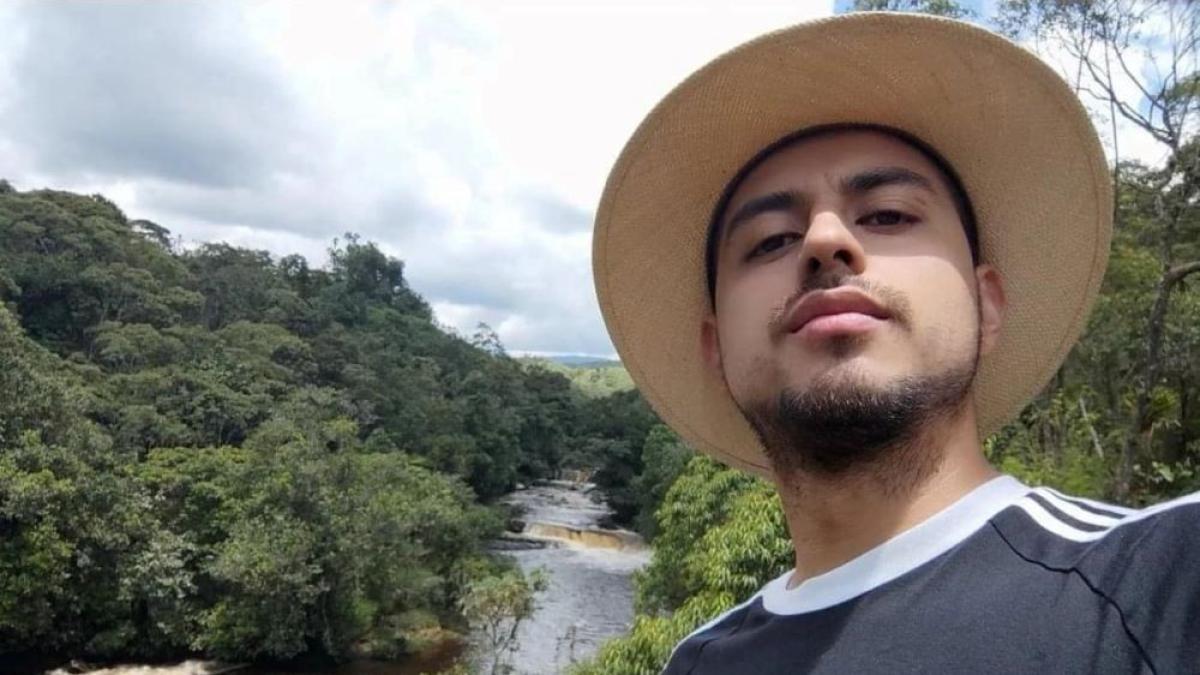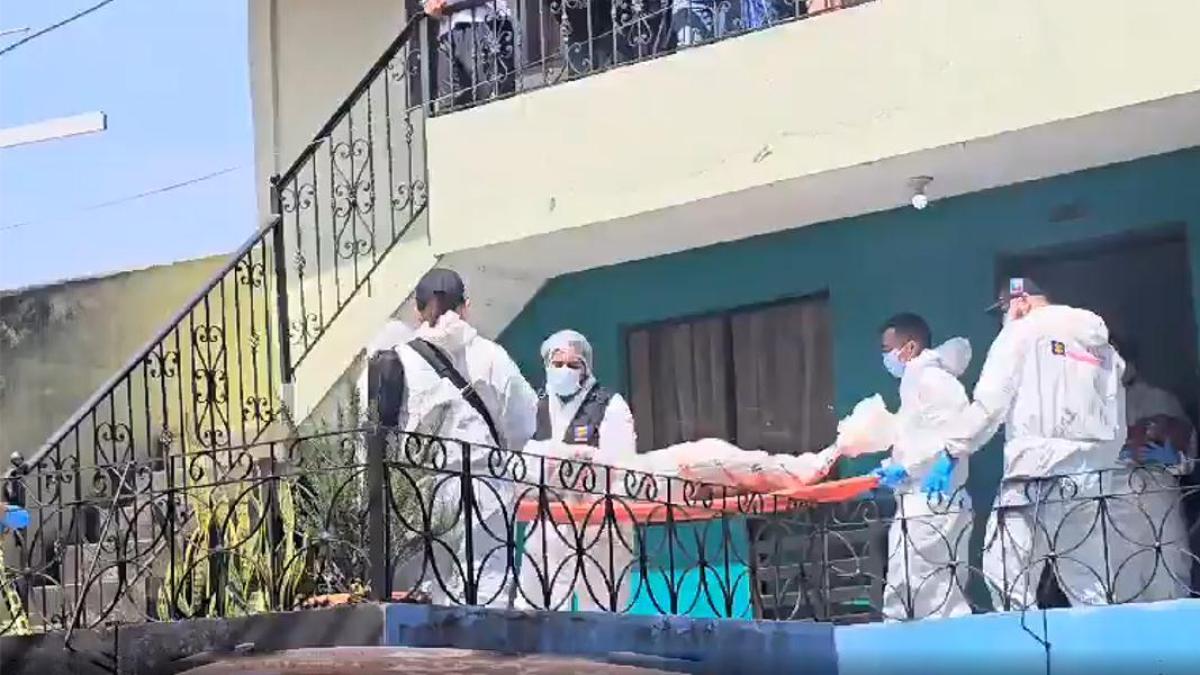The private sector has a crucial role to play in conserving and restoring biodiversity. During COP16, several organisations, companies and associations demonstrated their commitment to sustainability issues and forged alliances that were crucial, even decisive, for intergovernmental agreements. All the more so when one of the issues on the table is the financing needed to achieve the goals set out in the Kunming-Montreal Framework for 2030.
Conforme a los criterios de

In an interview with EL TIEMPO in the Blue Zone of the Biodiversity Summit in Cali, Matthias Berninger, Bayer's Global Director of Sustainability, talks about how the private sector and large multinational companies can contribute to reducing the impact on ecosystems and boosting research and development for the benefit of nature and humanity.

Matthias Berninger (right), Bayer Global Head of Sustainability, discusses with participants and delegates at COP16.
Foto:Bayer
What can you say about what is happening here in relation with business and the private sector in terms of sustainability and biodiversity?
I have attended COPs as an NGO representative, as an elected member of parliament, as part of a government delegation, and also as a business leader. So I've seen COPs from many different perspectives. One of the things that's very noticeable here in Cali is that there are a lot more business representatives than we've seen before. For example, the United States Chamber of Commerce, which is the largest business organization, has never been to a biodiversity COP. They have come here to Cali, which shows that there is significant global business interest in this process.
One of the main issues being discussed at this COP on Biodiversity is financing. What do you think about the involvement of business in this discussion? How can the private sector play an important role?
There are two ways to go about it. The traditional way is to talk about, "Let's have a global tax. But I would say, good luck with that - that's never going to happen, and the destruction of nature is happening at a pace that doesn't allow for long, drawn-out discussions that sometimes go on for decades. So we need unusual solutions, and let me give you an example: a coalition called the LEAF Coalition, where governments (the United States, the United Kingdom, Norway, and Korea) are working together with companies like Amazon, Bayer, Microsoft, Nestlé, and many other well-known brands. Together, we have mobilized $1.5 billion to invest in local communities that protect rainforests and other valuable natural habitats. These are the kinds of extraordinary solutions we need. Right now, people are talking about $700 million, so what you need is not one project like this, but probably 100 or even hundreds. I think we can move faster towards investing in nature if companies, NGOs and of course governments work together.
What do you think are the main issues or difficulties we need to consider today in relation to biodiversity and sustainability?
I think the biggest challenge we have is that we have a growing world population. Last year we passed 8 billion people on this planet, and we also have many regions of the world where people are yearning for a better life after the pandemic and various conflicts that have slowed down development. Balancing that with the need to protect more nature from human exploitation is really critical - and it's very difficult to do. We haven't done it very well in the past, which is why it's so challenging and why global gatherings like COP16 here in Cali are so important.
Do you think they’re useful? I mean, every two years we hold these kinds of conventions to talk about biodiversity.
Well, in my view, the very first major meeting in 1992 included biodiversity, climate and desertification - all in one meeting - because these issues are so interconnected. I think we could simplify the process by having a single framework that focuses on our planet and encompasses all the challenges facing humanity today. But I think COPs are very valuable. They may be a messy way of doing things on a global scale, but they're the only mechanism that works given the many divergent interests involved - so I'm a strong supporter of these meetings.
Let's talk about what companies like Bayer are doing to address these challenges. How can Bayer and other major companies around the world help to address these issues?
We have the largest agricultural R&D budget of any company in the world, spending more than two and a half billion dollars a year on agricultural research and development. I think that's our biggest contribution, because if we can move agriculture from a model that's harmful to nature to one that's regenerative - if we can produce more on less land with less negative impact on biodiversity - we can make a real difference. That's our main contribution. Second, we are part of coalitions working to advance the agenda, helping delegates here to reach consensus and move biodiversity goals forward. The influence of large companies like Bayer is crucial to the success of these meetings. For example, the Paris Climate Conference was one of the big breakthroughs made possible because a company like IKEA coordinated and led industry support for a breakthrough. For Susana Muhammad, the big question now is whether we as an industry can help her lead a successful COP and be a successful Co-President.
What kind of good practices can we implement here in our country to address hunger?
First of all, we all need to agree to stop deforestation. During the industrial era, forests were chopped down around the world to meet the increasing needs for food, animal feed, fibers, fuels, and other feedstocks for the chemical industry. We have to stop that; we need to focus on agriculture on existing land, which means regenerating degraded lands and being more efficient with the land we’re currently cultivating. That’s one important step. The second is diets. When people have some disposable income, they tend to buy meat and animal products. Colombia, for example, is well-known for its high consumption of eggs, so there’s a huge demand for these kinds of products. We need to find ways to balance animal proteins with plant-based proteins. Adopting a different diet worldwide is essential. The third thing is supporting smallholder communities, who are some of the poorest people in the world, by giving them much greater access to innovation to help them produce more food reliably. It’s worth considering that these communities have done nothing to drive climate change, yet they suffer from extreme weather events—storms, droughts—like no one else. They don’t have insurance, so helping these smallholders is crucial. I believe we can replicate the “Brazilian Miracle” of turning a food-importing country into a major food exporter in regions like Africa, without destroying existing forests. We need to learn from what was achieved at the beginning of this century, bringing innovation to Africa to support smallholders without harming nature.
Some experts think that the goals being discussed here are quite ambitious. What do you think about that?
Look, there is a certain drama to these negotiations. If you want to get something done, you have to start with ambition. For the COP presidency - and this is how you have to look at it - if Colombia is the host, they're not going to achieve anything if they're not a successful host. You have to set a very high bar, a high ambition, to get something meaningful out of a COP. Now we're moving into the second week, where politics gives way to compromise. Look, the whole world is here and they have to agree on something. Sometimes it's hard to come to an agreement within a family, let alone a community, a country, and here we have the whole world having to come to an agreement. So that's the art of the second week: compromise. But let's not lose sight of the challenge before us. If we continue to lose nature at this rate, humanity will be in serious trouble, which is why protecting biodiversity and business success are inextricably linked. The storms we're seeing in the United States, for example, are causing damage that even the U.S. economy can barely absorb. This should give us pause to consider whether we really want to continue to push ourselves out of the climate comfort zone, as we've been doing for the last 50 years.
DAVID ALEJANDRO LÓPEZ BERMÚDEZ
Journalist at COP16
On social media: @lopez03david
Editor's note: This text is an artificially intelligent English translation of the original Spanish version, which can be found here. Any comment, please write to berdav@eltiempo.com
html:

.png) hace 5 meses
65
hace 5 meses
65








 English (US) ·
English (US) ·  Spanish (CO) ·
Spanish (CO) ·